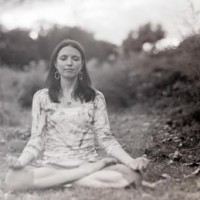[Bestnweb.com]
It is misconception that people who suffer from eating disorders are easy to spot; emaciated, drawn, pale, lifeless, and lying on a couch all day. The majority of people with an eating disorder actually look relatively normal most of the time, residing at a seemingly healthy weight and carrying out the activities of daily life: work, friends, family and of course working out. The imagined ideal of an eating disorder can only be maintained (I shouldn’t use maintained here since it is always in flux at this juncture) for a short period of time and if prolonged can and will lead to death. Chronic eating disorders don’t survive in this state.
How does one then live with an eating disorder? I present:
The Illusion.
I lived, if one can use that word, in this state for the better part of my eating disorder, slipping in and out of it from time to time, but staying in this phase throughout the majority of my mid to late twenties. To the outsider I maintained a full life of school, work, dating and friends, but inside I continued to crumble. I was holding up the weight of my illusion, piling it on more and more each day, holding up this inauthentic facade.
Perhaps it would have been easier to strap a billboard to my back.
[steveandamysly.tannerworld.com]
I kept trying to convince myself that I was engaged in life since after all I had all the outward signs of it, but each night I returned home utterly exhausted and unhappy. I pushed for more in all realms: more work, longer workouts, and more dates with different men. The key to life had to exist behind some corner since for some reason I kept failing at this thing call life.
I judged myself by others, comparing my life to those I barely knew, the friend of a friend on Facebook, those I passed by on the streets, perhaps seeing their full lives of relationships, work, travels, family and children. I had to make myself feel better, flipping it to the exterior and feeling like a success in that yes perhaps I was thinner, worked out more and had more control, when in truth I was the one spiraling out of control and winding deeper into my illusion.
Life became what I did rather than what I was.
Human doing instead of human being.
Constant doing has the effect of flattening years together, so that one is barely able to distinguish one period of time from the next. Alcoholics and those with other addiction disorders often report similar experiences. They emerge into recovery with a hazy fog of what they have been through. Perhaps this is the bodies’ way of lessening the pain of the loss of so many years, the loss of opportunity and the loss of life. A discussion of this using the terms loss can seem negative, but this isn’t so. As I’ve written before here and here, regret isn’t part of my journey. This path that I’ve journeyed down has allowed me to view the world in different ways, and at last I am beginning to be in a position to help to help others. There is another side. Scary? Yes. Worth it? Definitely.
I continue to move through recovery, two steps forward, one step back, a dance with life I happily and authentically engage in, simultaneously painful and joyful, all the while dancing away from my illusion.
What is your illusion? Are you living your life to your fullest potential?











Read 8 comments and reply